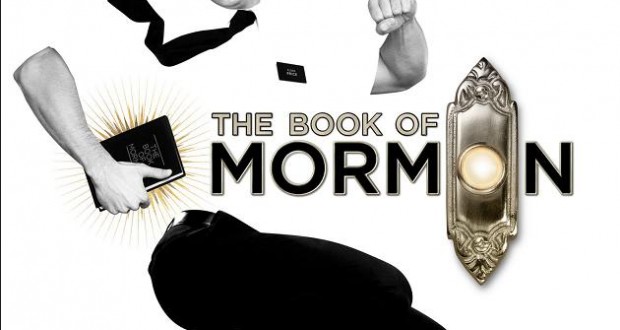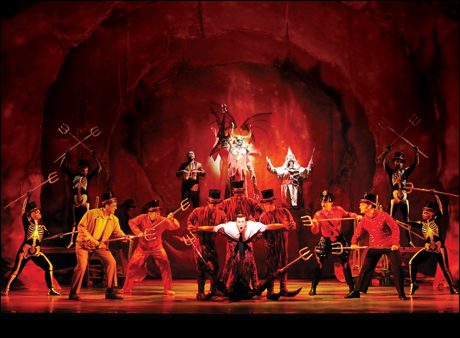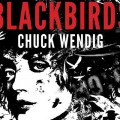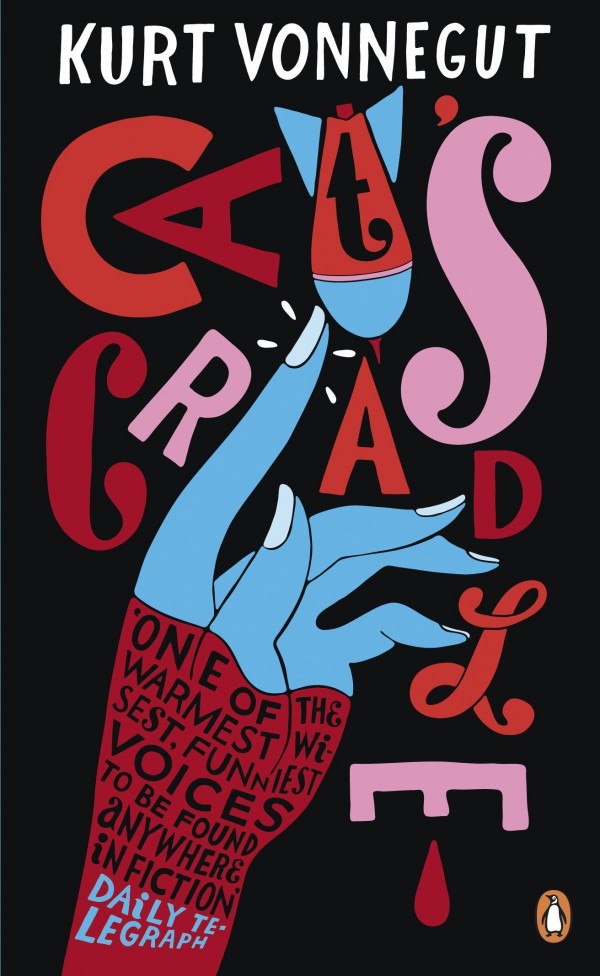Since hearing that South Park’s creators, Trey Parker and Matt Stone, used their satirical genius and love of music to create a Broadway musical satirizing the The Church of Jesus Christ of Latter-day Saints, I have wanted to see it. Of course, as the show has received almost universal praise, tickets are hard to come by (good tickets, anyway). I purchased my tickets back in November to get decent seats in mid-April. But it was definitely worth the wait.
While the show doesn’t have quite the same epic quality of something like The Lion King, it is truly the best musical stage production I’ve seen. It takes the best aspects of musicals and satire, mashes them together to create something truly brilliant. The story is fun, the satire perfect, and the songs incredibly catchy. And to the person sitting in front of me who groaned when hearing that Elder Price would be played by Ashley Day (instead of Gavin Creel) – you should be ashamed of yourself. Day was perfect.
Plot
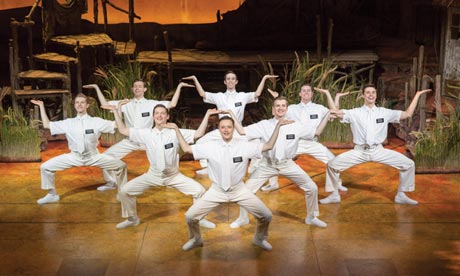 Elder Price is about to finish his training at the Missionary Training Center, waiting to be given his mission pairing and location. Price believes he has been a very good Mormon, therefore deserves to get sent to his favourite place on Earth: Orlando. Unfortunately, Price gets paired with the compulsive-liar, Elder Cunningham, and sent off to Uganda. After a brief feeling of disappointment and dismay, Price decides that this is his opportunity to do something truly amazing.
Elder Price is about to finish his training at the Missionary Training Center, waiting to be given his mission pairing and location. Price believes he has been a very good Mormon, therefore deserves to get sent to his favourite place on Earth: Orlando. Unfortunately, Price gets paired with the compulsive-liar, Elder Cunningham, and sent off to Uganda. After a brief feeling of disappointment and dismay, Price decides that this is his opportunity to do something truly amazing.
In Uganda, Price and Cunningham find something they did not expect – the terrible poverty and politics of the country combined with the lack of success the other Elders have had so far. Price continues to try to follow the rules and ignore what he is feeling, but soon it becomes too much for him. Meanwhile, Cunningham finally finds success with the Africans, which prompts the Mission President to visit.
Creative team and cast
The team behind The Book of Mormon consists of South Park’s Trey Parker and Matt Stone with Avenue Q and Frozen’s Robert Lopez. During the development of Team America: World Police, Parker and Stone attended a performance of Lopez’s Avenue Q. Lopez and then creative partner, Jeff Marx, noticed the duo in the audience and introduced themselves following the show. They found that they all were interested in writing a musical satire of Mormonism. Marx left the project not long after due to creative differences and the project was seen through to completion by Parker, Stone, and Lopez.
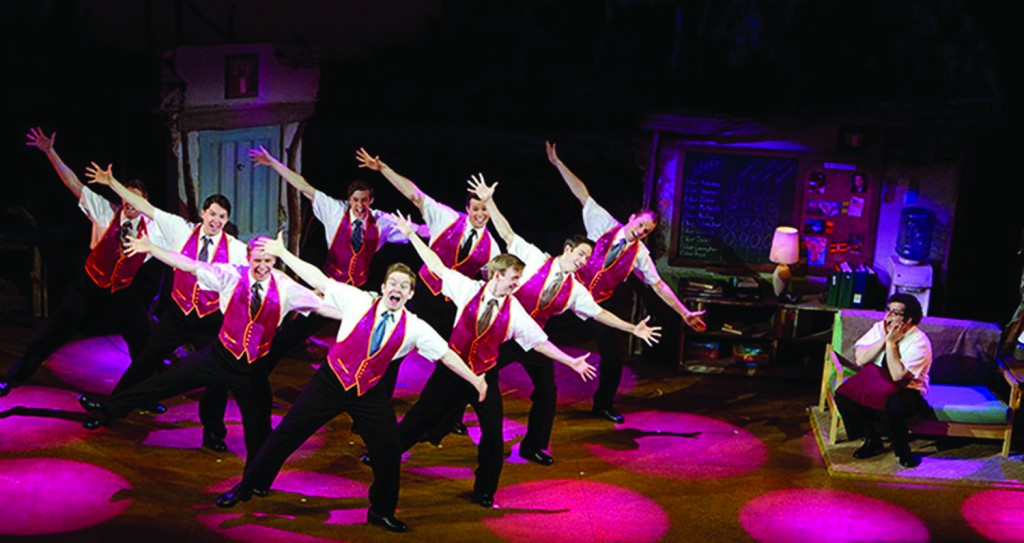 The original cast in Broadway included Andrew Rannells and Josh Gad as Price and Cunningham. I enjoy listening to the Original Broadway Recording, particularly for Gad who first popped onto my radar after a scene-stealing appearance in New Girl, before becoming a household name for his portrayal of Olaf the Snowman in Frozen. Much of the West End production in London still uses its original cast member for the main roles, Gavin Creel as Price (with Ashley Day winning Understudy of the Year for this role), Jared Gertner as Cunningham (who previously performed the role in the US as well), Alexia Khadime as Nabalungi, Chris Jarmon as General Butt-Fucking Naked, and Stephen Ashfield as Elder McKinley (aka scene-stealer and charistmatic badass).
The original cast in Broadway included Andrew Rannells and Josh Gad as Price and Cunningham. I enjoy listening to the Original Broadway Recording, particularly for Gad who first popped onto my radar after a scene-stealing appearance in New Girl, before becoming a household name for his portrayal of Olaf the Snowman in Frozen. Much of the West End production in London still uses its original cast member for the main roles, Gavin Creel as Price (with Ashley Day winning Understudy of the Year for this role), Jared Gertner as Cunningham (who previously performed the role in the US as well), Alexia Khadime as Nabalungi, Chris Jarmon as General Butt-Fucking Naked, and Stephen Ashfield as Elder McKinley (aka scene-stealer and charistmatic badass).
The songs, the satire, and the insanity
The satire in The Book of Mormon works on two levels – poking fun at both Mormonism as well as stage musicals. The style of the songs rip-off well-known musical theatre numbers and play off the audiences expectations. For instance, ‘Hasa Diga Eebowai’ is a reference to The Lion King’s ‘Hakuna Matata’ (which the song also refers to explicitly), ‘Joseph Smith American Moses’ is a take-off of the ‘Uncle Tom’s Cabin’ performance in The King and I, ‘Orlando’ takes its cues from ‘Maria’ in West Side Story, ‘Sal Tlay Ka Siti’ is the big female ballad talking about hopes and dreams that could almost be taken from any musical, with ‘I Believe’ being reminiscent of tracks from The Sound of Music. ‘Baptize Me’ is also a brilliant play on the romantic, sexual overtones in a typical musical duet.
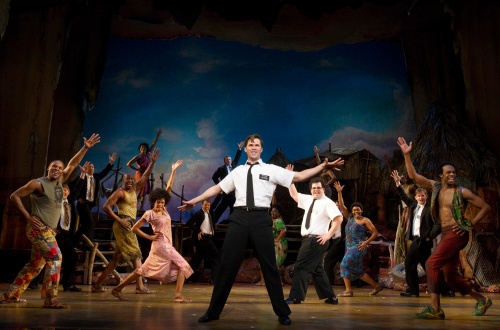 The content of the lyrics and story take the form of a parody of Mormonism. Surprisingly, the Church responded in a fairly sensible, measured way. They argued that while The Book of Mormon was entertaining for a few hours, the sacred text itself would change someone’s life. The finer details of the sacred text are presented in extremes and are not always focusing on the officially sanctioned beliefs. While the production does pick apart Mormonism specifically, the themes are much wider than that – looking at the basis of faith and doubt in religion, particularly in the epic ballad, ‘I Believe’. Elder Cunningham’s view of the sacred text as dull reflects my own view of the Bible. I much prefer his invented version of the story, containing references to Star Trek, Star Wars, Lord of the Rings, and more.
The content of the lyrics and story take the form of a parody of Mormonism. Surprisingly, the Church responded in a fairly sensible, measured way. They argued that while The Book of Mormon was entertaining for a few hours, the sacred text itself would change someone’s life. The finer details of the sacred text are presented in extremes and are not always focusing on the officially sanctioned beliefs. While the production does pick apart Mormonism specifically, the themes are much wider than that – looking at the basis of faith and doubt in religion, particularly in the epic ballad, ‘I Believe’. Elder Cunningham’s view of the sacred text as dull reflects my own view of the Bible. I much prefer his invented version of the story, containing references to Star Trek, Star Wars, Lord of the Rings, and more.
While the satire is fairly direct, I don’t believe that it is outright offensive. People will take from it what they want to see. As an atheist, I enjoyed the prods at the religious beliefs: ‘A Mormon just believes!’ and ‘They’ll have to believe it just ’coz’. But at no point does the story suggest that any of the Mormon characters are bad people, simply misguided. The Africans the Mormons do influence also benefit from their interactions with the Elders, even if their interactions are not strictly following the Mormon beliefs.
I have been a long-time musical theatre fan and The Book of Mormon holds up well against the best of the traditional productions. My partner, a musical theatre virgin, also thoroughly enjoyed the performance. I believe there is something in The Book of Mormon for almost anyone (that isn’t too squeamish when it comes to swear words) – minus religious zealots that may be offended by the satire.
Verdict: This is a must see production. Currently running in the West End, Broadway, and on tour in the US.
 Pop Verse Pop Culture Universe
Pop Verse Pop Culture Universe
